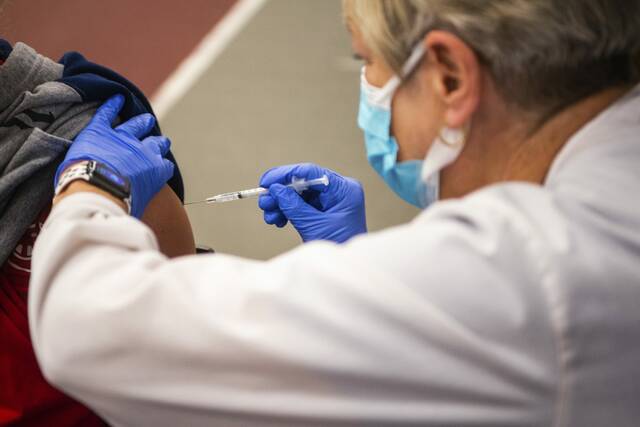The covid-19 booster shot debate is now in full gear. Ongoing review, analysis and discussions involving the FDA, the CDC and the White House are bringing more chaos into a public health environment that needs calm and consistency, not confusion.
As the delta surge continues in certain areas, many of which have low vaccination rates, will this surge expand to areas with high vaccination rates where populations have waning immunity? By design, booster shots should enhance immunity protection among those already vaccinated.
Numerous issues remain surrounding booster shots.
Booster shot acceptance: In areas with high vaccine acceptance and uptake, selling a third dose of the Pfizer and Moderna vaccines to those already vaccinated should be easy. However, will it sow seeds of concern about the vaccines amongst some, who were told that after two doses they were protected?
Booster shot hesitancy: As with any new product, a learning curve must be traversed to inform decision-making. Will this give some pause to get their third shot, creating a new group of vaccine hesitant? Indeed, public health decision-makers must make their assessments and recommendations with limited data, creating challenges that may be underappreciated by the lay public.
Vaccine resistance: Among those who remain vaccine resistant, the recommendation of a third shot may further solidify their rationale and vaccine mistrust, making it even more difficult to move their position.
Several questions remain on the table for booster shots.
Will every person already vaccinated eventually need a booster shot? What is the ideal time window since ones last shot?
One-size-fits-all recommendations do more harm than good. The challenge is assessing which population cohorts need to strengthen their immune response. The recent FDA recommendation took the first step in doing this.
One issue that they did not address is assessing what level of risk of severe outcomes is sufficient to warrant a booster shot as soon as possible. A further parsing of the data will likely identify cohorts that would benefit from a booster shot, rather than a blanket statement of those who self-identify as at high-risk base on health condition or occupation. For example, the CDC recently reported that over 30% of the U.S. adult population is obese. Though this group is at relatively higher risk than those not obese, the absolute risk may still be lower compared to other cohorts, like those with pulmonary or cardiovascular disease.
The take away is that most people justifiably fall outside the need for a booster shot at this time, given that the vaccines’ primary strength is to prevent hospitalizations and deaths, which it has clearly demonstrated so far.
Based on reported CDC breakthrough data, 69% of the breakthrough infection hospitalizations and 86% of the breakthrough infection deaths have been people over 65 years old. This group will benefit from booster shots today, as the FDA and CDC noted.
The FDA already recommended a third shot for those who are immunocompromised.
With around 200 million adults in the U.S. vaccinated with at least one dose, a booster shot to every such person would require vaccines that would benefit countries that do not have the luxury of widespread vaccine availability that we enjoy. Bringing the pandemic under control demands that everyone in the world gain immunity, with vaccines the safest route available for most. Until then, the virus will continue to infect and mutate, creating waves of outbreaks that ultimately place everyone at risk.
Though the current group of vaccines have proven remarkably effective in preventing hospitalizations and deaths, a next generation of vaccines are needed that are even more effective in preventing symptomatic infections and more durable over time. Research to identify effective treatments will also go a long way to allow people to feel safer.
A number of cohorts would certainly benefit from a covid-19 booster shot at this time. However, the majority of people appear sufficiently protected against hospitalization and death with the current two-dose regimen. Ideally, assessing if or when a booster shot adds measurable protection and is warranted should be determined using clinical trials. In the short term, observational data from the population on breakthrough hospitalizations and deaths based on age, time since last vaccine, and vaccine manufacturer are invaluable to inform such assessments.
What is most critical at this time is helping those unvaccinated see the value of vaccination. Moreover, using scarce vaccine doses domestically while millions of people around the world cannot even get their first dose makes no sense and does not shine a favorable light on our nation.
Sheldon Jacobson is a professor of computer science at the University of Illinois at Urbana-Champaign








